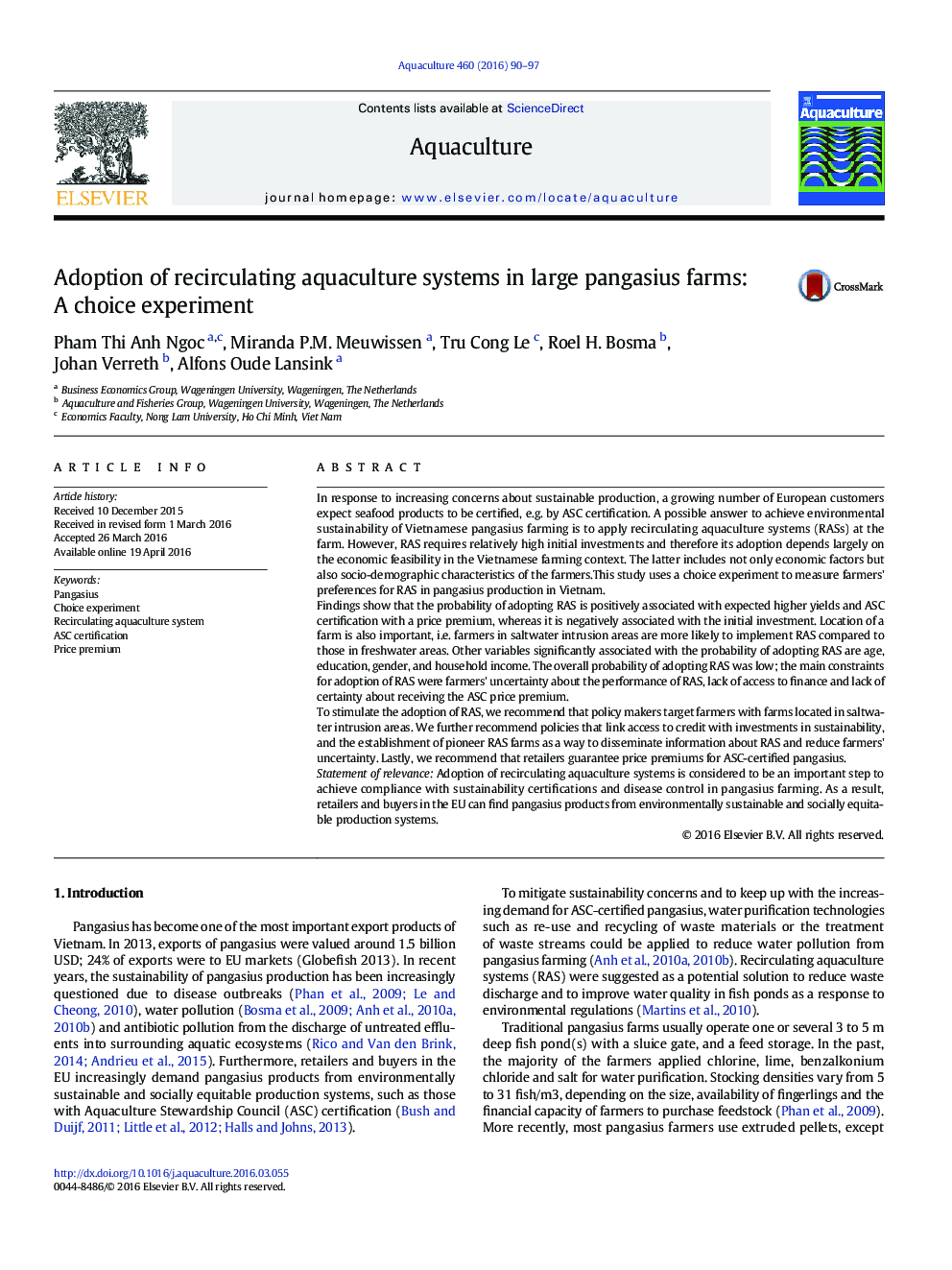| کد مقاله | کد نشریه | سال انتشار | مقاله انگلیسی | نسخه تمام متن |
|---|---|---|---|---|
| 2421404 | 1552827 | 2016 | 8 صفحه PDF | دانلود رایگان |
• Adoption of RAS is considered important towards environmental sustainability and disease control in pangasius farming.
• We design a choice experiment to explore factors affecting the willingness of Vietnamese pangasius farmers to adopt RAS.
• Low adoption of RAS due to availability of finance, lack of trust in a price premium and uncertain performance of RAS.
• Farmers in saltwater intrusion areas are more likely to adopt RAS than farmers in freshwater areas.
In response to increasing concerns about sustainable production, a growing number of European customers expect seafood products to be certified, e.g. by ASC certification. A possible answer to achieve environmental sustainability of Vietnamese pangasius farming is to apply recirculating aquaculture systems (RASs) at the farm. However, RAS requires relatively high initial investments and therefore its adoption depends largely on the economic feasibility in the Vietnamese farming context. The latter includes not only economic factors but also socio-demographic characteristics of the farmers.This study uses a choice experiment to measure farmers' preferences for RAS in pangasius production in Vietnam.Findings show that the probability of adopting RAS is positively associated with expected higher yields and ASC certification with a price premium, whereas it is negatively associated with the initial investment. Location of a farm is also important, i.e. farmers in saltwater intrusion areas are more likely to implement RAS compared to those in freshwater areas. Other variables significantly associated with the probability of adopting RAS are age, education, gender, and household income. The overall probability of adopting RAS was low; the main constraints for adoption of RAS were farmers' uncertainty about the performance of RAS, lack of access to finance and lack of certainty about receiving the ASC price premium.To stimulate the adoption of RAS, we recommend that policy makers target farmers with farms located in saltwater intrusion areas. We further recommend policies that link access to credit with investments in sustainability, and the establishment of pioneer RAS farms as a way to disseminate information about RAS and reduce farmers' uncertainty. Lastly, we recommend that retailers guarantee price premiums for ASC-certified pangasius.Statement of relevanceAdoption of recirculating aquaculture systems is considered to be an important step to achieve compliance with sustainability certifications and disease control in pangasius farming. As a result, retailers and buyers in the EU can find pangasius products from environmentally sustainable and socially equitable production systems.
Journal: Aquaculture - Volume 460, 1 July 2016, Pages 90–97
